Chefs from some of the most reputable fine-dining restaurants across Singapore gathered in the Grand Ballroom of Marina Bay Sands on July 24 — all keen to know if they had gotten a place in the prestigious Michelin Guide.
Such an achievement is something chef Paul Longworth has been used to experiencing since 2016 — save for during the Covid-19 pandemic — as his eatery, Rhubarb Le Restaurant at Duxton Hill, had received a Michelin star for 10 consecutive years. Rhubarb Le Restaurant was also part of the first batch of eateries to be in Singapore’s Michelin Guide during its inaugural edition in 2016.
But this year, he, along with chefs from nine other 2024 one-Michelin-star restaurants, were not at the awards ceremony. And this was not something he found surprising.
From fine dining to casual modern concept
Earlier in June, the 47-year-old Brit converted his contemporary French fine-dining restaurant, which opened in 2014, to a more casual dining concept called Encore by Rhubarb. He was aware that by doing so, he would have to give up his one Michelin star.
But it had not been a decision made on a whim.
“Last year, we were strategising and analysing how we thought 2024 was going to be like and we already knew that it was going to be quite a difficult year,” Paul told AsiaOne in an interview at Encore by Rhubarb.
“And as we were getting through the year, we could see how challenging it was becoming. A lot of restaurants were closing end of last year as well.”
This left them with three options, he told us.
“We could close, which is not an option; we could just continue to stick to what we were doing and try to brute force our way through the market, or we could regroup, try to relaunch the restaurant and take it in a new direction,” said Paul.
While Rhubarb Le Restaurant was not struggling to stay afloat, Paul did not want to wait until it was too late.
“That was probably the hardest thing for me to come to terms with — is it the right choice to close the restaurant, reinvest, reopen and go in a different direction? Because the restaurant was still doing okay. We were not struggling. But we could see the trend. Things were definitely getting a bit harder and that was starting to affect us. And that was one of the driving forces to make the change when we did.”
And so they went with the last option, which was to turn Rhubarb Le Restaurant into Encore by Rhubarb.
The timing also made sense as Rhubarb Le Restaurant turns 11 this year.
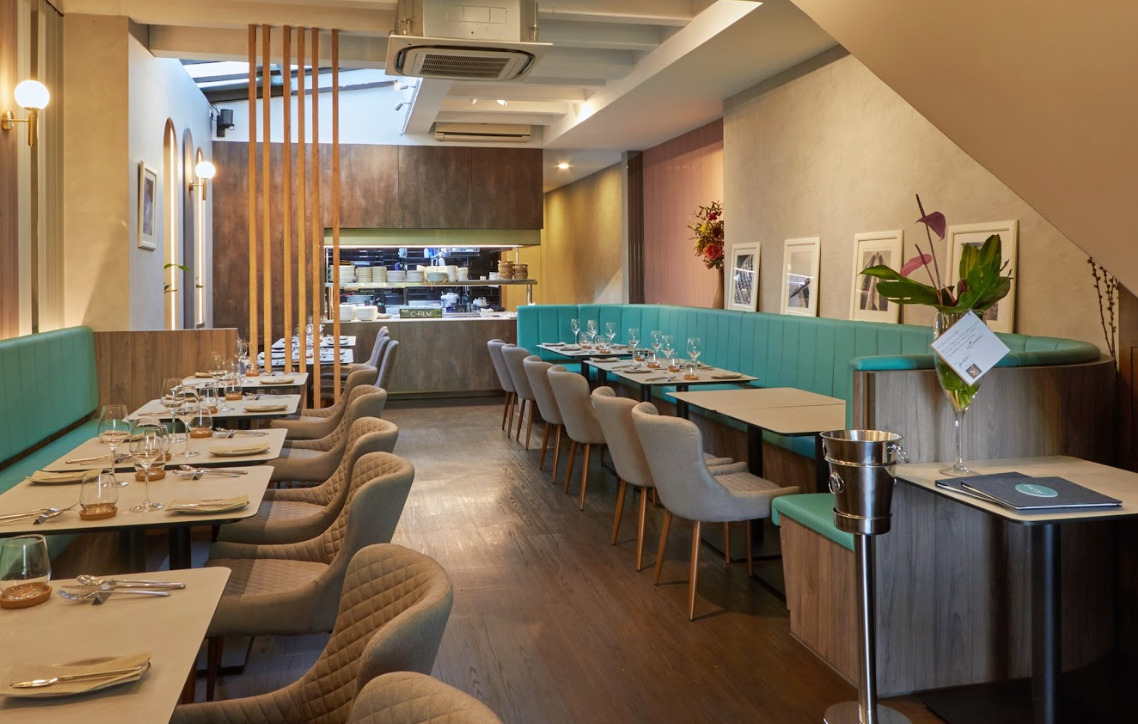
“It’s nice to have a renovation, it’s nice to have a relook at our food, it’s nice to do something a bit different. So all of these things made it feel like it was the right time.”
Calling it an “evolution”, Paul said he feels Rhubarb Le Restaurant and Encore by Rhubarb are “quite similar in some respects”.
“We just tried to strip it down a little bit and focus on the core ingredients more, so the food would be somewhat simplified,” he elaborated.
But the new simplified menu doesn’t mean a drop in quality — it’s just a way for the team to challenge themselves and explore new ideas in the kitchen.
“Because we’re using a different price point, we can use different ingredients — we have to. So it opens up a lot more doors for us, where people are not just limited to ribeye or a rack of lamb. We have to be able to work within a different budget now,” said Paul.
“So lamb shoulders, chicken, pork belly, salmon, we’re able to explore different cuts, which are not the easiest to use, because they’re not at that price point. But we really have to work a bit harder to either extract the flavour or to turn them into something quite nice.”
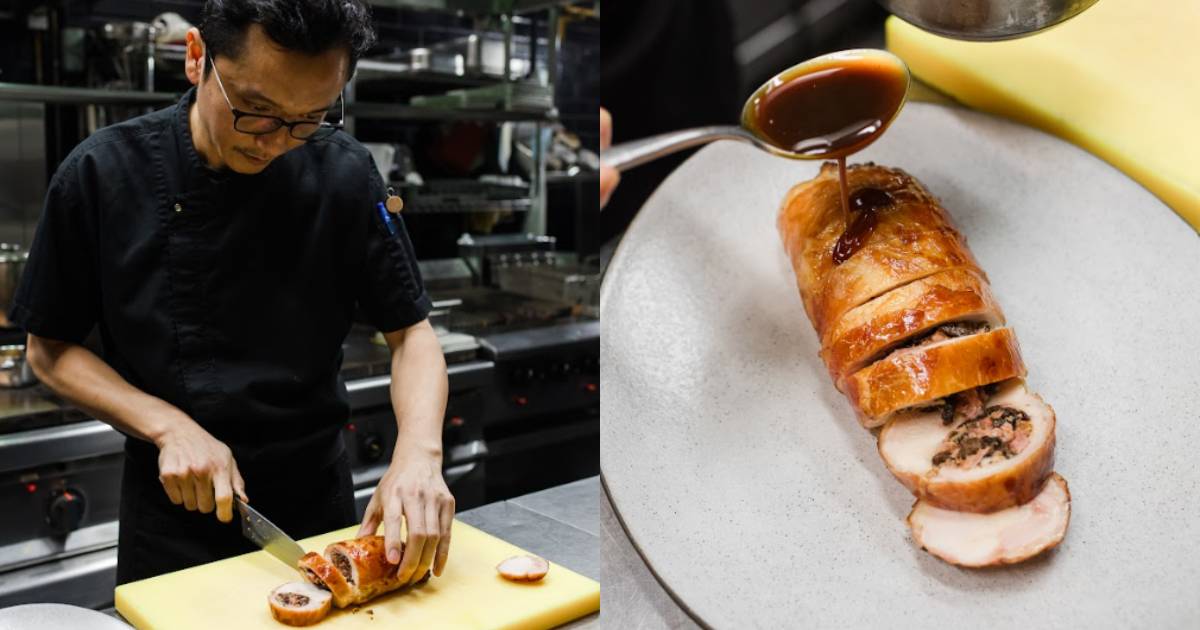
Overall, he feels that the new concept is inspired by where the restaurant first started out and where he personally has come from as a chef.
“Because right now, I can start looking back at dishes that I cooked 20 to 25 years ago and reimagine them today,” shared Paul, who previously worked in French one-Michelin-star restaurant Club Gascon in London before moving to Singapore.
While the new concept cost the restaurant a Michelin star, Paul has no regrets.
“[A Michelin star is] something that is so hard to earn, it’s never going to be easy to relinquish. But we can’t be defined by only that. It’s a wonderful achievement and it’s a great thing to have, but for what we want to do and where we want to take this restaurant — which I think is a far more sustainable style of restaurant in this current market — ultimately, we’re going to have to go in a different direction and we will lose the star,” said Paul.
“We’re a new restaurant, we are a new name, we have a new menu, we have a new price point. If [Michelin] wants to come back and re-evaluate us, they can come back and re-evaluate us. But that’s not really a main goal for us at all.”
Paul added that while he wasn’t compelled to “protect the star”, he does not undervalue its worth.
“A Michelin star is so important to a lot of chefs and it’s so hard to get, and not everyone gets it. There are people out there that are trying and it could be a dream for them. So I will never devalue what it is worth because I know how important it is for a lot of people out there,” said Paul.
“I don’t want to become blase and say ‘I can take the star or leave it’. It’s not about that. But your restaurant shouldn’t be defined, or you as a chef, should not be defined [by it]. You should be cooking the food that you want to cook, as well as you can, for your customers, and that should be your main priority. So for me, it wasn’t a big deal to go in a different direction.”
Is Singapore’s fine-dining scene suffering?
Rhubarb Le Restaurant is not the only one that lost a star this year — nine other fine-dining restaurants like Art Di Daniele, Oshino and Restaurant Poise did so too.
Art Di Daniele closed in December 2024 as its lease had ended and the restaurant is currently working towards reopening in a new location.
Oshino shuttered as chef-owner Koichiro Oshino decided to retire from the Singapore culinary scene in March.
Restaurant Poise closed abruptly in March as well and in an emotional Instagram post, the team shared that it was due to “many factors that [they] as a team could not influence or control”.
“When I saw the Michelin list this year and saw that nine restaurants had lost their stars because they closed — us included — that’s quite shocking,” said Paul.
He also pointed out that a few days after the Michelin Guide results, Alma by Juan Amador shuttered, with Euphoria following shortly after.
“It’s heartbreaking,” Paul told us when we asked how he felt about the news. “Some of the [restaurant owners] I know personally, some of them I know very well. It’s not a positive thing at all for any industry when you start to see mainstays like that go. It’s like a bad precedent.”
“You never want to see the restaurants of any of your peers or people that you respect close. But it’s a sign of the times and how difficult it is.”
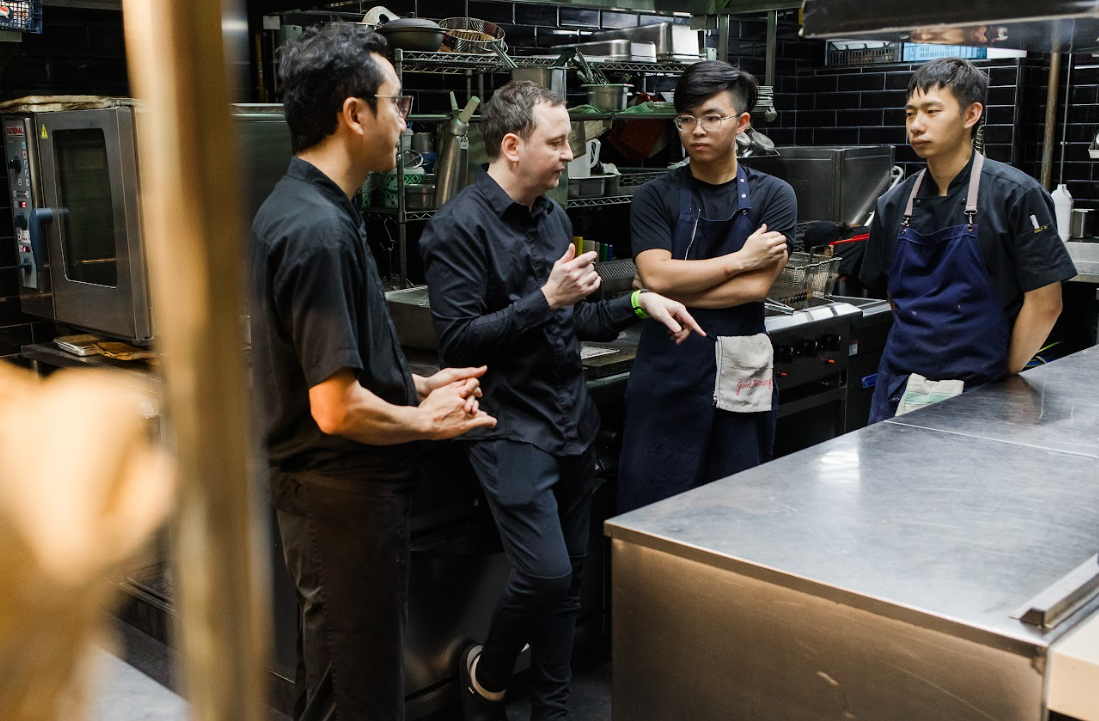
Paul saw some of these signs after the pandemic.
“For me, it’s also the result of when we came out of Covid-19. There was this surge in fine-dining restaurants. Everyone wanted to do a high-end menu, a lot of places were doing that and I think it just got too saturated,” he said.
He also noticed that more menus ranging from $200 to $400, which used to be “few and far between”, began popping up and became more common.
And coming out of the pandemic, many consumers had more disposable income to splurge on such luxurious experiences.
However, it wasn’t very sustainable.
“As the market shifts — and the markets will shift, because fine-dining food at the end of the day is still a luxury item — people can always replace that with something else when they need to. So the market has changed and you’re left with too much supply and not much demand,” he pointed out.
“When everyone is busy and people are able to hire more staff, and people can spend more money, it drives everything. So when you start to see restaurants closing down and business starting to slow down, that’s not good, it’s not good for the economy.
“But it does solidify my decision to make the change when we did, because if we hadn’t made that change, I don’t know where we would be right now. That’s quite scary, isn’t it?”
Something else he noticed was that dining choices were mostly limited to either very cheap or expensive options.
“I saw a big gap in the market, but there was nothing in that middle, nothing that was really decent enough in quality but didn’t really break the bank.”
So his aim was to fill that gap with a restaurant with good quality food and reasonable prices that diners would be able to revisit regularly.
A three-course set lunch at Encore by Rhubarb costs just $48++, while a four-course set dinner is $88++. Diners who don’t want to commit to a set menu can also choose from a range of a la carte options.
Even when Rhubarb Le Restaurant was still in operations, Paul had always tried to keep the menu “value-for-money” despite it being a fine-dining establishment.
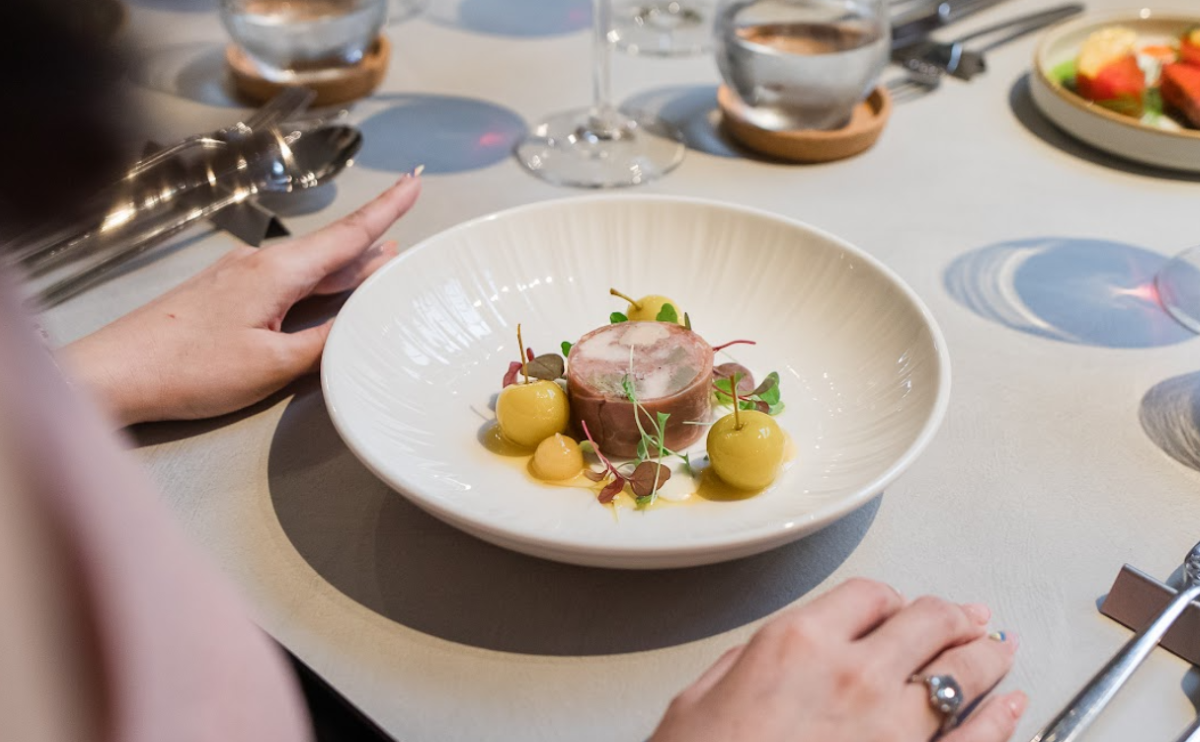
“For a one-Michelin-star French fine-dining restaurant, it’s very affordable. Dinner [at Rhubarb Le Restaurant] was $138++ for four courses and $168++ for five. We’ve always had that structure and price point, and for me as a chef, it’s always been important to over deliver on that,” he said.
“So whatever the price point is, I always try to give more than what people would expect for the price. It is what a chef should be able to do, regardless of the cost of the ingredients.”
Despite the pivot to a casual dining concept, Paul isn’t closed off to the idea of going back to fine dining in the future.
“We can always come back to that. And I think maybe I will, who knows? But that’s something for another time, nothing’s ever off the table. It’s just that we’ve done 10 years of fine dining and now it’s about making this restaurant successful and building it for another 10 years, hopefully.”
Address: 3 Duxton Hill, Singapore 089589
Opening hours: Mondays, Tuesdays, Thursdays to Saturdays, 12pm to 2.30pm, 6.30pm to 9.30pm
[[nid:716017]]
melissateo@asiaone.com

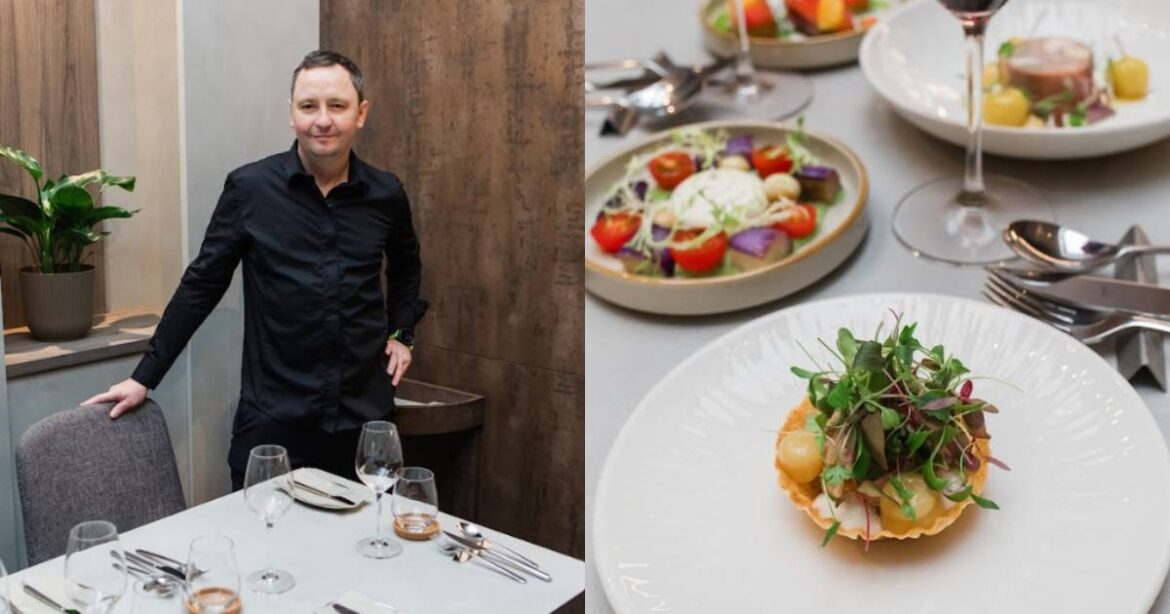
Dining and Cooking